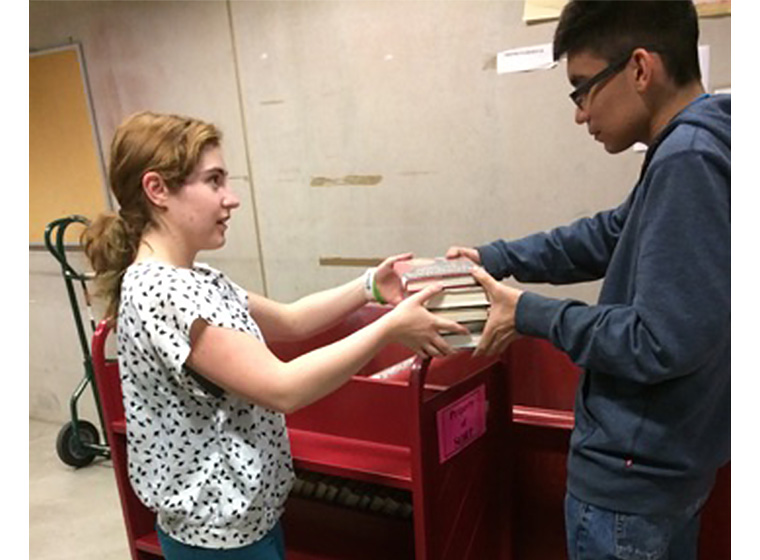By Mathilde Rispoli
I remember the first time I walked into SARRC. I was in the reception area, waiting with my leg bouncing up and down. I was nervously thinking about what my first volunteer session as a peer mentor in the CommunityWorks® program would be like. My only experience with autism was through stories my mom had told me about her time as a teacher in a self-contained classroom.
I had images of a chair being thrown across the room or someone screaming. But I walked into a room full of games and instruments, and heard someone playing the piano. I walked over and began to play piano with the other person who was playing and we immediately connected. As the program started, I soon realized that the person I had been playing piano with had autism and that playing piano was the closest I would get to having a conversation with him for a while.
As the weeks went on and the activities continued, I began to meet more teens with autism. The diagnosis had little impact on our ability to find similarities, from movies to sports, we always found something to connect over. As I talked with more people the image of a chair flying across the room went further into the back of my mind. Now, in the front of my mind are my interactions with other teens.
I never thought about all the actions that make up a conversation: body language, eye contact, tone, spacing, questions, responses and how to end a conversation. As I practiced these skills with teens with autism, I had such an appreciation for how hard they were working to learn skills I never thought twice about. The teen I had played piano with was still reluctant to talk much at all, but slowly he would start to make eye contact that lasted longer and our conversations went from simple small talk to full-blown conversations about our favorite composers.
Together, we learned about different skills we needed for work, like how to send an absence email and signing in and out. A year later, I’m using these very skills in the workplace. As a peer mentor, I have also changed how I view conversations, which has improved my own interactions at work. In addition, this experience has opened me up to working with people with all different backgrounds.
Through CommunityWorks, I learned autism isn’t something to be feared and isn’t something that takes over a person’s personality. Through my interaction with individuals with autism, I’ve gained an appreciation for all the social skills I once took for granted, and notably, I've gained a new perspective on the world and the ability to see the world through others’ eyes.
To learn more about volunteering in SARRC's CommunityWorks program, contact Carlos Nuno at 602.218.8217 or [email protected]

